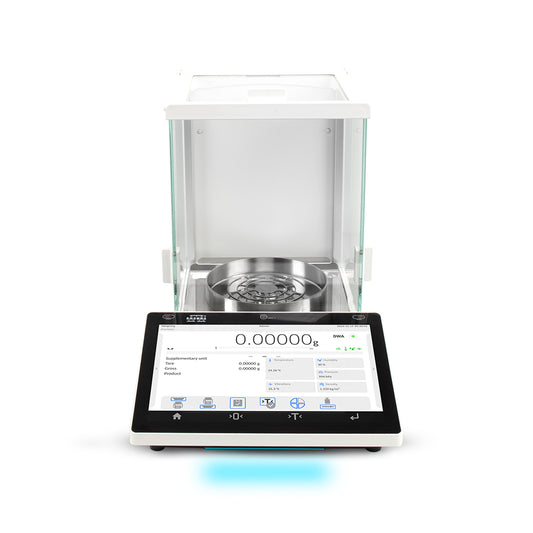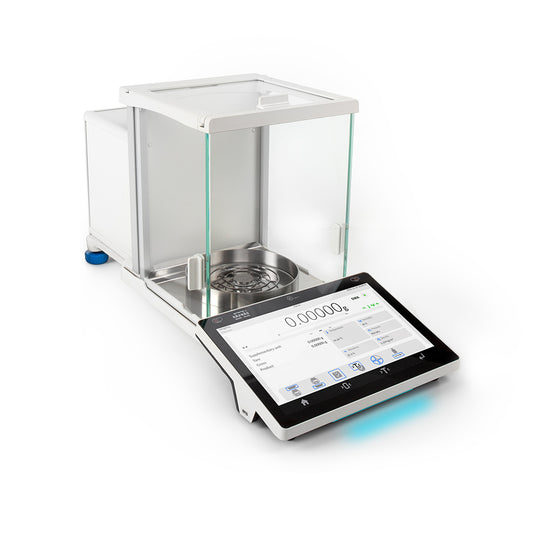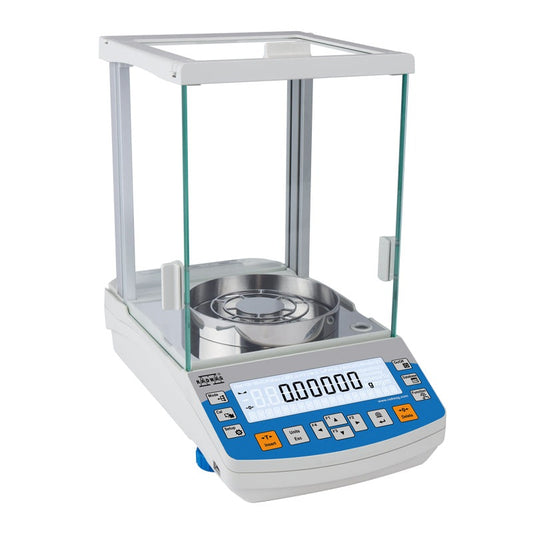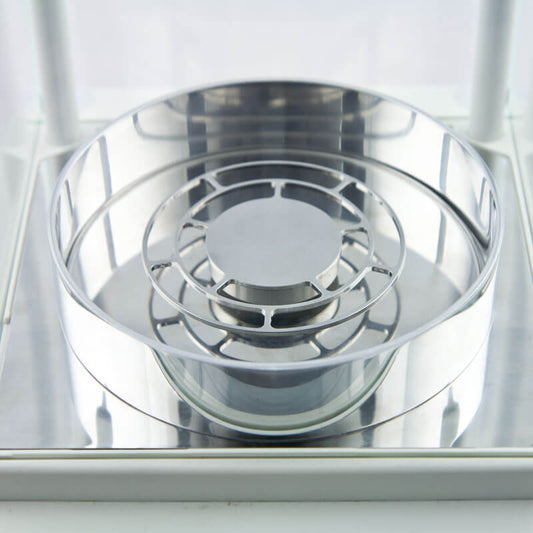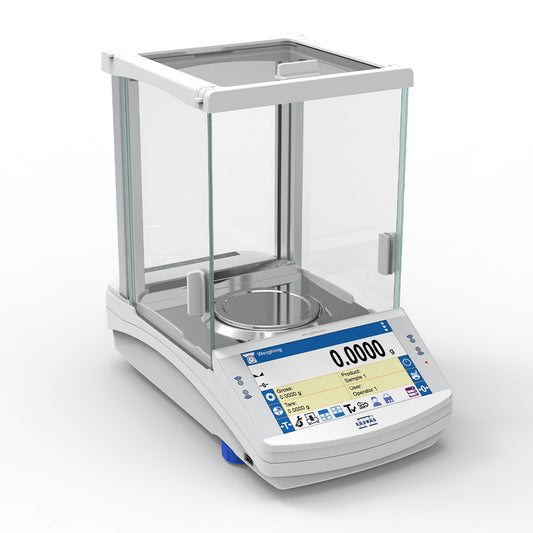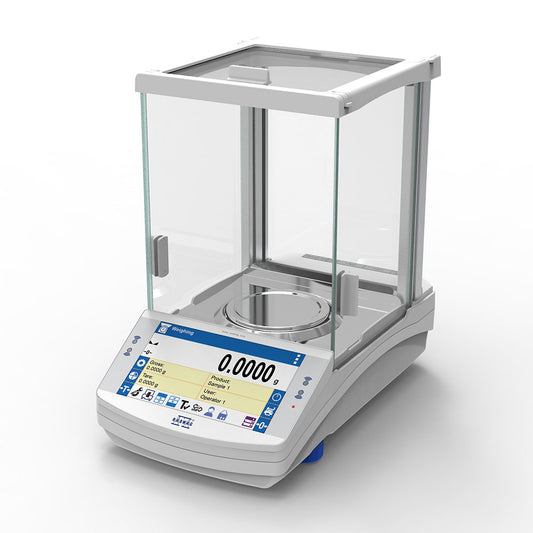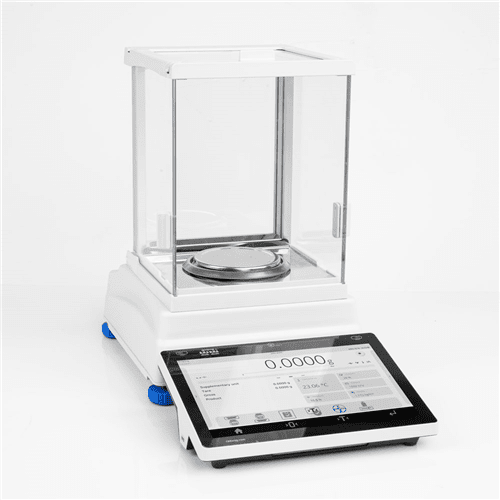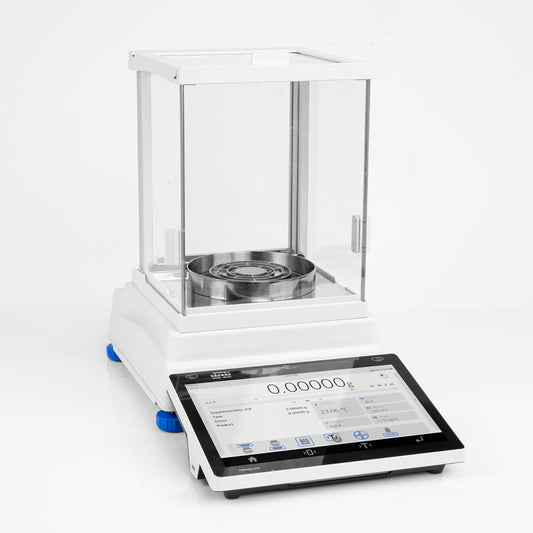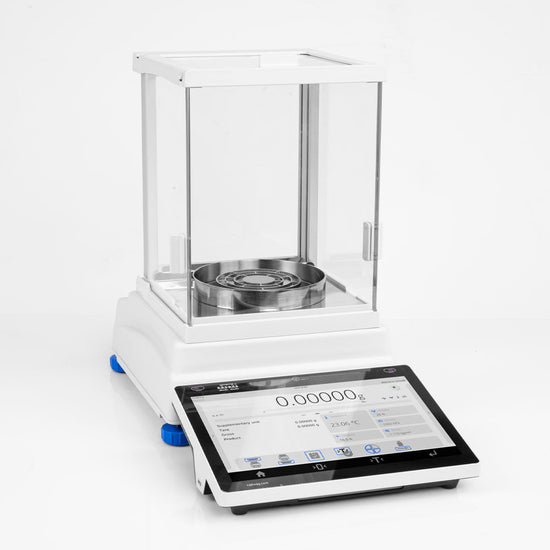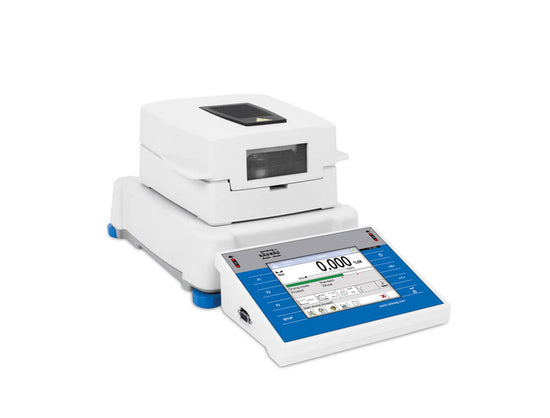Collection: Analytical balances
-
Analytical balance XA 5Y
Vendor:RADWAGRegular price From €4.916,00Regular priceUnit price / per€5.175,00Sale price From €4.916,00Sale -
Analytical balance AS R2 PLUS
Vendor:RADWAGRegular price From €923,33Regular priceUnit price / per€923,33Sale price From €923,33 -
Analytical balance AS X7
Vendor:RADWAGRegular price From €1.435,00Regular priceUnit price / per€1.510,00Sale price From €1.435,00Sale -
Analytical balance AS 5Y
Vendor:RADWAGRegular price From €3.168,00Regular priceUnit price / per€3.335,00Sale price From €3.168,00Sale
Compare analytical balances to find the best solution for your needs
Product categories
Installation and maintenance services
Discover the benefits of our quality certified maintenance and installation services. Expert workmanship guaranteed for all your needs.
RADWAG
5Y Series
Readability [d]:0.01 mg - 1 mg
Maximum capacity [Max]:52 g - 3100 g
- Reading unit [d] 0.01 mg
- Minimum weight: 10 mg
- Conditioning shelf
- Open-work weighing pan
- Tool-free disassembly of the chamber
RADWAG
X2 series
Readability [d]:0.01 mg - 1 mg
Maximum capacity [Max]:60 g - 3.1 kg
- Remote operation and settings customization
- 5” touch screen
- 21 CFR Part 11 compliance module - option
- Compliance with GLP and GMP requirements
- LevelSENSING System
- Spacious weighing chamber with an antistatic coating
- Easy cleaning
RADWAG
R Series
Readability [d]:0.01 mg - 0.1 mg
Maximum capacity [Max]:60 g - 520 g
- Wi-Fi®(balance remote operation) – option
- Backlit LCD
- Quick access to function keys
- Ergonomic operation
- Easy cleaning
- Antistatic pane coating
What are the main applications of laboratory balances?
Laboratory balances are widely used in research, industrial, pharmaceutical, food, and other sectors where precision and accuracy of mass measurements are crucial. They are used to weigh chemical substances, samples, medications, laboratory materials, and other objects requiring precise mass measurement.
What are the differences between analytical and precision balances?
Analytical and precision balances are types of laboratory balances, but there are some differences between them. Analytical balances are more precise and have a greater ability to accurately measure small masses, often to milligrams or even micrograms. Precision balances usually have less precision and may have a higher capacity, but are still used for measurements requiring high accuracy.
How to care for a laboratory balance to ensure its accuracy?
To keep a laboratory balance in good condition and ensure its accuracy, it is important to regularly perform calibration according to the manufacturer’s recommendations. It is also important to keep the balance clean and avoid exposure to environmental conditions that could affect its performance, such as vibrations, humidity, or temperature.
Are laboratory balances calibrated before delivery?
Most laboratory balances are calibrated before delivery by the manufacturer to ensure their accuracy. However, regular calibrations in the laboratory are recommended according to the manufacturer’s guidelines to maintain high-quality measurements throughout the usage period.
What are the advantages of using laboratory balances in a laboratory?
Laboratory balances allow for accurate and repeatable mass measurements, which are essential in many research and industrial fields. They also provide standardization and precision in measurements, facilitating the conduct of experiments, scientific research, and quality control in production.
